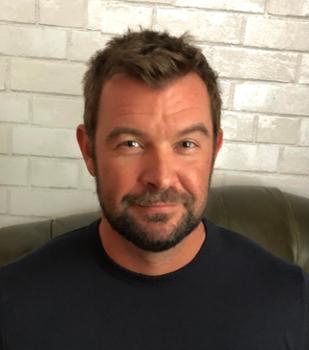Jeremy Fisher
Adjunct Instructor

Office Hours: MWF 2:00-4:00 pm and by appointment (best option)
Phone: 843-953-8034
Jeremy Fisher began his studies in Ohio where he attended both a private Jesuit college and a major public university. After receiving degrees in Political Science and Philosophy, he attended the University of Virginia where he focused his intellectual pursuits on Religious Studies. His teaching reflects his interdisciplinary commitment, focusing primarily on Applied Ethics, Religion in the Public Sphere, and Critical Theory.
In His Own Words
In a wonderful text detailing the richness, complexity, and potential impact of religious practice globally, Religious Studies scholar Stephen Prothero argues that “Religion may or may not make sense to you, but you cannot make sense of the world without making sense of the world’s religions.” On this point, we couldn’t agree more. Whether you consider yourself an adherent, a practitioner, an interested (or disinterested) observer, a “recovering” devotee, or an outright disbeliever, religion is here—for better or for worse.
As a lifelong student, history nerd, and budding academic, I have always been captivated by religions gravity—its ability to draw us in and give shape and structure to our orientations and sensibilities (religious or otherwise); its ability to drive us apart and set us on altering (and sometimes conflicting) trajectories; its ability to provide comfort, community, stability, meaning, and purpose; and its ability to shut down lines of communication in an instant, seemingly bringing out in us the worst of human behavior. As I relentlessly remind my students, “religion” is a deliciously complex phenomenon, and regardless of our commitments or affiliations, it simply cannot be sidestepped, shelved, or discarded without great personal, political, and social cost.
No matter what class I’m teaching, then, I take special care to develop with students the distinction between critique and criticism. “Thinking critically” about religion in particular is not synonymous with “being critical” of religion in general, and so despite our innumerable social and cultural differences, I do my best to advocate for and facilitate open and honest dialogue—even with, especially with, those to whom we disagree. My doctoral dissertation, “A Promising Godlessness: Recovering the Religious Atheism of Ludwig Feuerbach” was an exercise toward this end—using an atheistic critique of (Protestant) Christianity to uncover and develop the foundationally humanistic undertones “hidden” in God-language and (Christian) religious practice, in an attempt to bridge the ever-expanding gap between believers and nonbelievers. In writing or in the classroom, I aim to equip students with the tools and skills to “make sense” of religion’s disorienting dynamics, and to inspire and encourage them to challenge their preconceived notions—wherever they may fall on the religious spectrum. As my former instructor-turned-colleague has taught me, what we see depends on where we stand. And as I teach my students, if we cannot develop the courage and integrity to change vantage points, then we are doomed to assume that what we see is all that there is to see.
Education
Ph.D. Religious Studies, University of Virginia
M.A. Religious Studies, University of Virginia
M.A. Philosophy, Kent State University
B.A. Philosophy, Walsh University
B.A. Political Science, Walsh University
Research Interests
Applied Ethics: Moral Philosophy, Social and Political Thought, Environmental, Biomedical, and Business Ethics, Just War, Love and Justice, History of Christian Ethics
Philosophical Study of Religion: Critiques of Religion, Theodicy, Existentialism
Religion in the Public Sphere: New Atheism, Religion and Politics, “Spirituality”
Theories and Methods in the Study of Religion: Critical Theory, Feminism, Sociological, Historical, Psychological, Anthropological Approaches
World Religions: Buddhism, Daoism, Wicca
Academic Contributions
Presenter: Scaling the Liberal Arts: Using An Online Forum to Enhance Discussion Sections, Teaching with Technology Conference, University of Virginia, 2015
Manuscript Workshop Respondent, University of Virginia, 2015 “From the Theopaternal to the Theopoltical: On Barack Obama”
Manuscript Workshop Respondent, University of Virginia, 2013 “Divine Violence: John Brown and the Limits of Ethics”
Courses Taught
- HONS175: Religion and Protest
- RELS115: Religion and Society






